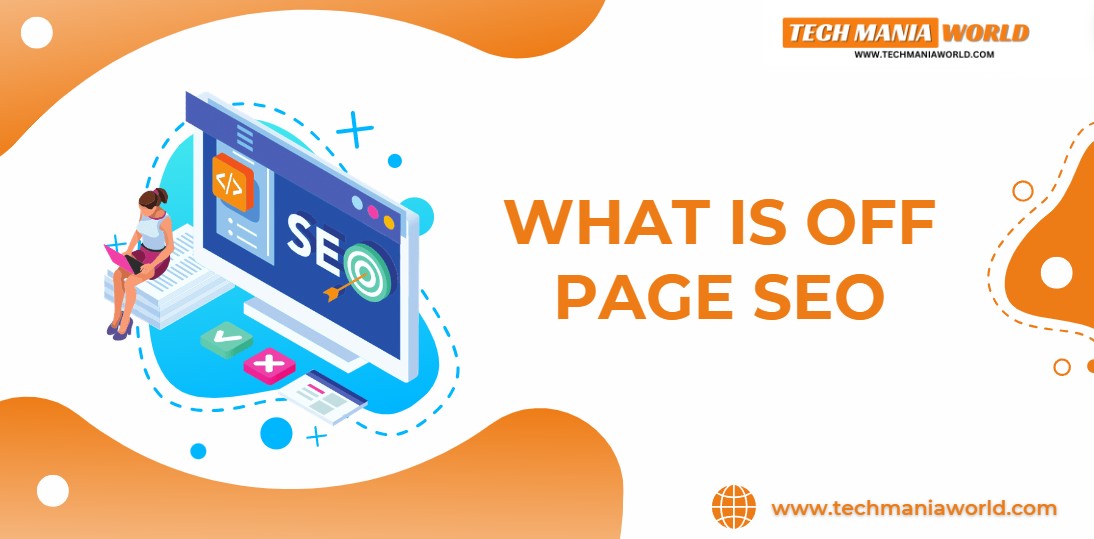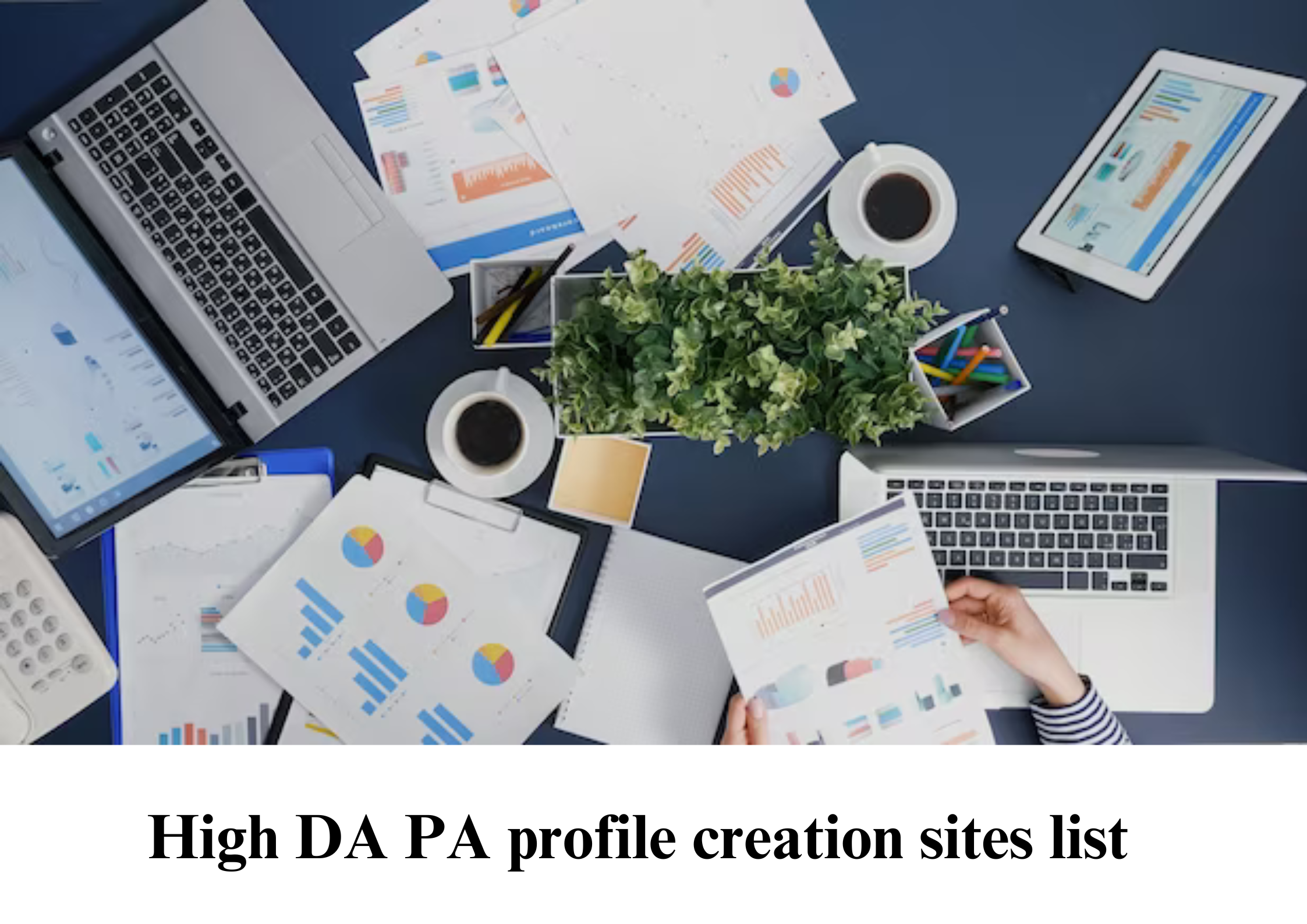Off-page SEO (Search Engine Optimization) refers to all the actions taken outside of your own website to improve its position in search engine results pages (SERPs). Unlike on-page SEO, which involves optimizing the content and HTML source code of a page, off-page SEO focuses on increasing the authority, relevance, and trustworthiness of your website through various external signals.
Also Read: Best High DA PA profile creation sites list 2024
Why Off page SEO Matters ?
Off-page SEO matters because it boosts your website’s authority and trust. It involves actions taken outside your website to impact your rankings. High-quality backlinks from other sites are crucial. They signal to search engines that your site is credible and valuable. Social media engagement and mentions also play a role. Off-page SEO helps improve your site’s visibility and organic search traffic. Overall, it builds a strong online reputation.
Key components of off-page SEO include:
- Backlinks:
- Quality over quantity: Obtaining links from high-authority websites relevant to your industry.
- Diversity: Having a mix of different types of backlinks (e.g., editorial links, guest posts, forum comments).
- Anchor text: Using varied and relevant anchor texts for backlinks to appear natural and avoid over-optimization.
- Social Media Marketing:
- Promoting content on social media platforms to increase visibility and attract backlinks.
- Engaging with followers and influencers to build relationships and drive traffic.
- Brand Mentions:
- Getting your brand mentioned on other websites, even if there are no direct links. Search engines can recognize these mentions and consider them in their ranking algorithms.
- Guest Blogging:
- Writing articles for other websites within your niche to gain exposure and backlinks.
- Influencer Outreach:
- Collaborating with influencers to promote your content, which can result in more backlinks and social shares.
- Forum Participation:
- Engaging in industry-specific forums and communities to establish authority and drive traffic to your website through profile links and signatures.
- Content Marketing:
- Creating high-quality, shareable content such as infographics, videos, and comprehensive guides that naturally attract backlinks.
- Local Listings and Directories:
- Submitting your website to relevant local business directories and online listings to improve local SEO.
- Press Releases:
- Distributing press releases to authoritative news sites to get backlinks and brand mentions.
- Events and Sponsorships:
- Participating in or sponsoring industry events to gain backlinks from event pages and recognition in the community.
Effective off-page SEO helps build a website’s reputation and authority, signaling to search engines that the site is a valuable and credible resource, which can lead to higher rankings and increased organic traffic.
How Off page SEO helps For Ranking a website ?
Off-page SEO (Search Engine Optimization) refers to all the activities you do outside your website to improve its search engine rankings. These activities help build your site’s reputation and authority, which can significantly enhance its visibility and ranking on search engines like Google. Here’s how off-page SEO helps in ranking a website:
1. Building Backlinks
- Quality Backlinks: Getting links from high-authority and relevant websites signals to search engines that your site is trustworthy and valuable.
- Quantity and Diversity: A variety of backlinks from different domains shows a natural link profile, indicating your content is widely appreciated and referenced.
2. Social Signals
- Social Media Engagement: Likes, shares, comments, and mentions on social media platforms can indirectly influence your rankings by driving traffic and increasing content visibility.
- Brand Awareness: Active social media presence helps in building brand recognition, which can lead to more branded searches and better ranking.
3. Online Mentions and Citations
- Brand Mentions: When your brand is mentioned (even without a hyperlink) on other websites, blogs, or forums, it helps build authority.
- Local Citations: Listings in local directories and Google My Business help improve local search rankings.
4. Content Marketing
- Guest Blogging: Writing articles for other reputable websites helps build backlinks and exposes your content to a broader audience.
- Infographics and Videos: Sharing visual content can attract links and shares, contributing to off-page SEO efforts.
5. Influencer Outreach
- Collaborations: Partnering with influencers or industry leaders can result in high-quality backlinks and increased traffic through their audience.
- Endorsements: Positive reviews and endorsements from well-known figures can boost your site’s credibility and ranking.
6. Forum and Community Engagement
- Participating in Forums: Contributing valuable insights on forums related to your industry can drive traffic and earn backlinks.
- Answering Questions: Being active on Q&A sites like Quora and Reddit can increase your visibility and authority.
7. Press Releases and News Articles
- Media Coverage: Getting featured in news articles and press releases can generate high-quality backlinks and significant traffic.
- Public Relations: Good PR strategies can enhance your online reputation and lead to more organic mentions and links.
8. Influence of Domain Authority
- Domain Age and History: Older domains with a consistent history of quality content tend to rank higher.
- Trust and Authority: Building domain authority through consistent off-page SEO activities makes your site a trusted resource, which is favored by search engines.
9. User Reviews and Testimonials
- Positive Reviews: Encouraging positive reviews on platforms like Google My Business, Yelp, and industry-specific review sites can boost local SEO and trust.
- Customer Feedback: Regularly updating your site with user testimonials and reviews adds fresh content and increases credibility.
10. Networking and Relationships
- Industry Networking: Building relationships with other businesses, bloggers, and influencers can lead to more backlink opportunities.
- Community Engagement: Engaging with your community and participating in events can enhance your brand’s reputation and lead to organic mentions and links.
Conclusion
Off-page SEO is crucial for building a website’s authority and credibility. By focusing on creating high-quality backlinks, engaging on social media, participating in community forums, and leveraging content marketing and influencer partnerships, you can significantly improve your website’s ranking and visibility on search engines.


